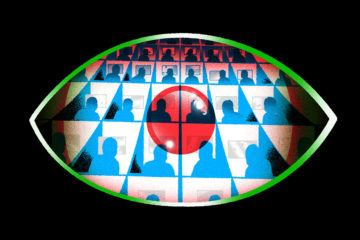Sarah Scoles in The New York Times:
 Are you an “insider threat?”
Are you an “insider threat?”
The company you work for may want to know. Some corporate employers fear that employees could leak information, allow access to confidential files, contact clients inappropriately or, in the extreme, bring a gun to the office. To address these fears, some companies subject employees to semi-automated, near-constant assessments of perceived trustworthiness, at times using behavioral science tools like psychology. Many employers are now concerned about retaining workers in the face of what has been called the Great Resignation. But in spite of worries that workers might be, reasonably, put off by a feeling that technology and surveillance are invading yet another sphere of their lives, employers want to know which clock-punchers may harm their organizations.
The language around this sort of worker-watching often mirrors that which is used within the government, where public agencies assess workers who receive security clearances to handle sensitive information related to intelligence collection or national security. Organizations that produce monitoring software and behavioral analysis for the feds also may offer conceptually similar tools to private companies, either independently or packaged with broader cybersecurity tools.
“When you think about insider risk in general, it probably emerges out of the government, and then makes its way into the private sector and commercial industry,” said Tom Miller, chief executive of Clearforce, which sells insider threat services to private clients.
More here.
